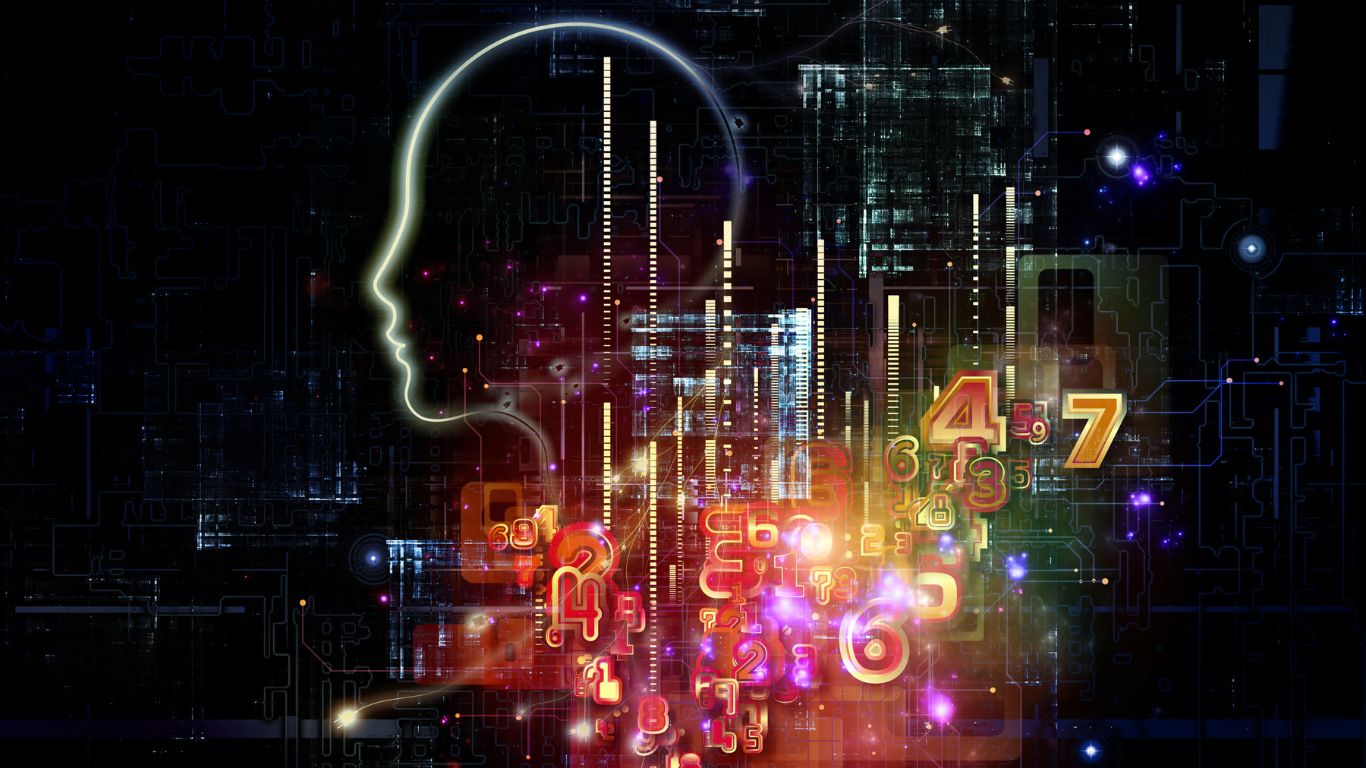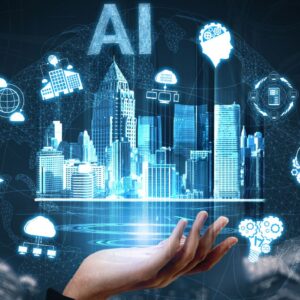- Tech
- No Comment
Artificial Intelligence in 2023: How It Will Impact

As Artificial Intelligence in 2023 continues to evolve and develop, it is becoming increasingly important to consider how AI will shape our world in the coming years. By 2023, AI will become more widespread, and its impact on different fields will be undeniable. This blog post will examine how Artificial Intelligence 2023 will change how we work and live in various sectors, from business and healthcare to education and transportation. We’ll discuss the potential benefits and drawbacks of AI, as well as the ethical implications of its use.
Healthcare

Artificial Intelligence (AI) has been used in healthcare to analyze large amounts of data to identify and diagnose diseases. AI also develops personalized treatment plans based on individual patient characteristics and lifestyles. Additionally, AI-based systems are designed for robotic surgeries, drug discovery, and diagnostics.
AI-enabled technologies like Natural Language Processing (NLP) and Machine Learning (ML) can process large amounts of medical information quickly and accurately. For example, NLP can be used to read and understand medical records, which can then be used to support diagnosis and treatment decisions. ML can be used to identify patterns in medical images such as CT scans, X-rays, and MRI scans, which can help doctors make more accurate diagnoses.
AI-powered chatbots can also interact with patients, provide primary medical advice, or schedule appointments. AI can also automate tasks like filing insurance claims, managing to bill, and tracking patient data.
AI is transforming healthcare by streamlining processes, improving accuracy, and providing personalized care. AI’s capability to process large amounts of data quickly and accurately can revolutionize the healthcare industry.
Retail

The impact of artificial intelligence on the retail industry is already being seen in many ways, from automation to virtual assistants. Automation is one of AI’s most essential benefits to the retail sector, allowing retailers to streamline their operations and reduce costs. AI can also help retailers make more accurate predictions about customer trends and preferences, allowing them to serve their customers better and meet their needs.
Virtual assistants are becoming increasingly popular in the retail sector. AI-powered virtual assistants such as Alexa and Google Assistant can answer questions, process orders, provide customer service, and more. This helps reduce human labor costs and allows retailers to respond quickly to customer inquiries. AI-powered virtual assistants can even be used for personalized marketing, helping to improve customer relationships and increase customer loyalty.
AI-powered predictive analytics are also proving to be a game changer for retailers. By using AI-driven analytics, retailers can gain valuable insights into customer behavior, enabling them to customize offers and promotions to meet customer needs better. Additionally, predictive analytics can help retailers better manage their inventory and stock levels, ensuring they don’t run out of essential items. Finally, AI can help reduce risk by detecting fraudulent transactions quickly.
Manufacturing

The use of Artificial Intelligence (AI) in manufacturing is becoming more and more widespread. AI is used to improve product quality, reduce costs, and increase productivity. Can analyze large data sets and detect patterns that can be used to predict maintenance issues or identify problems with products before they reach the customer. Also automate the production process, allowing machines to operate with minimal human input, which reduces labor costs.
AI-driven robots are becoming increasingly common in manufacturing, as they can perform various tasks. They can move parts around a factory, assemble components, inspect products for defects, and more. AI-powered robots can work faster and more accurately than humans, increasing productivity and reducing waste. AI-powered robots can also work collaboratively with humans, allowing them to work together on more complex tasks.
AI can also monitor the production process, allowing manufacturers to identify and address issues before they cause costly delays quickly. AI-powered systems can detect anomalies and promptly diagnose problems to minimize disruption to the production process. AI can also help manufacturers predict product demand, allowing them to optimize production and reduce costs.
In the coming years, AI will continue to revolutionize the manufacturing industry. With its ability to analyze large amounts of data quickly and accurately, AI will enable manufacturers to make better decisions faster than ever.
Transportation

The application of artificial intelligence in transportation is vast, with the potential to revolutionize how we get around. AI-powered vehicles are already beginning to hit the road to make driving safer and more efficient. Self-driving cars, powered by sophisticated AI algorithms, are designed to detect objects and traffic conditions while making decisions on their own. Autonomous drones are becoming increasingly popular, allowing for more efficient package delivery and remote inspections of hazardous environments.
AI-powered air traffic control systems are being developed to help streamline air travel, reducing wait times and collisions. AI can also optimize urban planning and transit routing, allowing cities to manage their transportation networks better. With the increasing focus on sustainability, AI can help reduce emissions from transportation networks by optimizing route selection and energy use. Ultimately, the use of AI in transportation has the potential to make the roads, skies, and oceans safer and more efficient for all.
Banking and Finance

With technological advances, banking, and finance have seen a surge in artificial intelligence (AI) use. By 2023, AI will become more pervasive in the banking and finance industry, revolutionizing how banks do business. AI can improve customer experience, reduce costs, detect fraud, and increase security.
AI-driven chatbots are increasingly used for customer service and to quickly answer queries. They can provide customers with personalized advice and recommendations based on their financial history and preferences. AI can also analyze customer data to identify patterns and trends to help banks better understand their customers’ needs.
AI-powered software can detect potential fraud by analyzing a customer’s transaction history and identifying anomalies that may indicate suspicious behavior. AI can also monitor accounts in real time, allowing banks to act quickly to prevent fraudulent activities. Banks also use AI to improve their risk management systems by providing more accurate predictions of potential losses.
AI also automates the loan application and approval process, saving banks time and resources. AI-based algorithms can analyze a customer’s data and credit score to determine whether they are eligible for a loan and what interest rate to offer them. AI-driven software can also provide more accurate investment advice than traditional methods, as it can consider more data points and analyze them more quickly.
Overall, artificial intelligence has the potential to revolutionize banking and finance in the years ahead. By 2023, AI will have become an integral part of the industry, providing banks with greater efficiency, improved customer service, and increased security.
IT and Software Development

The field of IT and software development is set to be significantly impacted by artificial intelligence (AI) in 2023. This is because AI will help to automate many of the tedious tasks that are associated with programming and coding. AI technology will also make it easier for developers to create complex algorithms and programs that can be used to solve problems more efficiently.
AI will also revolutionize software testing. Currently, the testing process is lengthy and prone to human error. By leveraging AI, developers can automatically detect bugs and errors in their code and make corrections faster. This will result in fewer delays and costly bugs, thus reducing overall costs for software development projects.
Finally, AI can be used to develop more intelligent and personalized applications. Machine learning algorithms can analyze user data and adapt applications accordingly. This allows developers to create applications that better meet user needs, resulting in a more seamless experience.
AI is expected to revolutionize how we develop software and applications in 2023. With its ability to automate tedious tasks, detect bugs, and improve application personalization, AI will become an integral part of the development process.
Human Resources

Human Resources is a field that could benefit significantly from Artificial Intelligence in the coming years. AI can revolutionize how HR departments operate entirely and recruit, streamlining processes and enabling better decision-making.
AI can automate mundane tasks such as screening resumes, scheduling interviews, and completing background checks. Using AI to analyze employee data, HR departments can make more informed hiring, firing, and promotion decisions.
In addition, AI can help HR departments match applicants with positions based on their skills and experience. By analyzing a candidate’s resume and other data points, AI can compare them with open roles that are a perfect fit. This improves Artificial Intelligence recruitment and saves time by automatically shortlisting applicants most likely to succeed.
The use of AI in Human Resources is already beginning to take off, and it’s only set to become more widespread as we move into the future. With AI, HR departments can make better decisions faster than ever, resulting in more efficient operations and higher-quality hires.